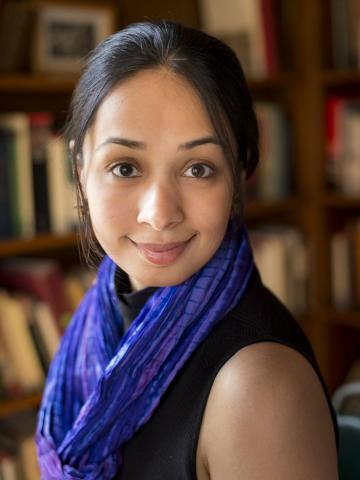HUMS 027, Six Pretty Good Selves
Have you ever asked yourself:
What is a Self?
Who am I?
How do I become who I want to be?
Welcome to Six Pretty Good Selves where we explore how writers, thinkers, and film-makers, have confronted these questions from the ancient world to the present day. Part of a new Yale initiative to introduce students to a diverse range of texts in various media across different historical periods and geographies, this FY seminar will take you on a tour from Ancient Greece and Ancient India to contemporary Iran and the United States by way of Japan, Algeria, France, Brazil and England.
Through the prism of thinking about the self, this course provides first-year students with an intensive introduction to studying the humanities at Yale. The course is anchored around six trans-historical models of thinking about selfhood: the ideal self, the lover, the revolutionary, the convert, the solipsist, and the social climber. We range widely across genres, media, periods, and geographies: from Plato’s Symposium to Machado de Assis’s Epitaph for a Small Winner, from the ghazals of Hafez to the Kamasutra. We also make extensive use of Yale’s rich manuscript archives, historical object collections, and art galleries and devote sustained attention to improving students’ academic writing skills.
We welcome all students, especially those who are looking to improve their writing, to explore courses in the humanities and who want to learn more about non-Western literatures alongside more canonical Western texts.
Enrollment limited to first-year students. Preregistration required; see under first year seminar program : https://registrar.yale.edu/students/preference-selection-and-preregistration-applications
This is a 1.5 credit intensive writing course that fulfills one WR requirement. Friday sessions will alternate between writing workshops and field trips to Yale collections.
Led By:

|
Professor Marta FiglerowiczProfesser Figlerowicz’ research articulates a counter-tradition to aesthetic individualism that has been present in Western art and literature at least since the seventeenth century, and which takes on particularly striking resonances in our contemporary digitally-mediated environments. She is currently developing a new academic project on the non-individualist phenomenology of contemporary digital media, called Myths of Obscurity: The Self in the Age of Integrated Media, and a popular audience book on global histories of selfhood. She regularly writes literary and cultural criticism for publications such as The Washington Post, n+1, Cabinet, Jacobin, The Los Angeles Review of Books, The Yale Review, Logic, and Boston Review. |
|
|
Professor Ayesha RamachandranProfessor Ramachandran is a literary critic and cultural historian of early modern Europe. Her recent work focuses on Europe’s relations with an expanding world—her first book, The Worldmakers (University of Chicago Press, 2015) charts transnational encounters and the early mechanisms of globalization from the late fifteenth to the early eighteenth centuries. She has published articles on a range of topics: on Tasso’s use of Petrarch’s Canzoniere in the Gerusalemma liberata; on the importance of Lucretius in the work of Edmund Spenser; on Montaigne’s engagements with Italy and with cosmographic texts in the Essais; on Mughal miniatures from the court of Jahangir and the challenge of cross-cultural comparative studies; and on fundamentalism in early modernity, among other subjects. |
Testimonials:
This course has not been previously offered. Testimonials are taken from a student evaluations of a previous course co-taught by Professor Figlerowicz and Professor Ramachandran in Fall 2017: Selfhood, Race, Class and Gender.
- “Prof Ramachandran and Figlerowicz had invaluable things to say about the readings and the content of the course. I loved hearing what they had to say. “
- “It was always fun and interesting to listen to Professors Figlerowicz and Ramachandran share their insights about each work and connect complex themes; they are both really brilliant, insightful, and witty.”
- “This class provided me with the vocabulary to understand not just selfhood in general, but to understand myself. Philosophical and literary frameworks of selfhood in this class allowed me to further understand aspects of myself I was unable to explain before. Furthermore, the curriculum’s unique approach to concepts of race, class, and gender allowed me to see these concepts outside of the most common conceptual lens.”
- “I think that this class provided a great selection of readings […] I think that this was a great strength of this class, making the student look at everything with lenses that may have been unexpected […] I was very happy that this class did not only examine Western literature, and that it included authors that are often ignored in typical classes that I have taken at Yale.”
